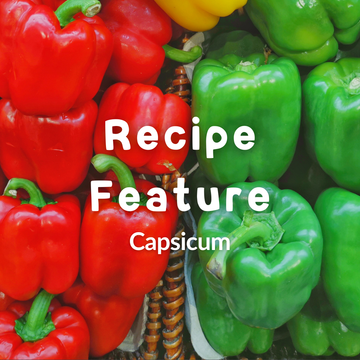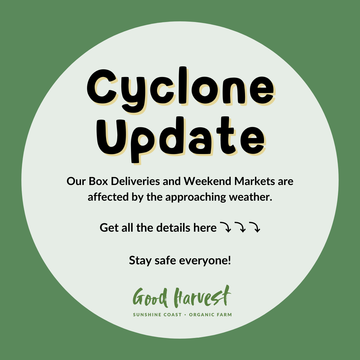I grew up along the Mississippi River in the Midwest of the USA right in the midst of corn and soybean crop country. Being so close to the river, I was aware of the issue of chemical run off from agriculture into the waterways. I remember feeling frustrated as I observed the infographic map on the wall at the local River Museum outlining the “dead zone” at the end of the Mississippi, where low oxygen levels caused by agricultural runoff kill fish and other marine life. The hypoxic area, which has a five year average size of 4,280 square miles, has been growing in size over time.
As I grew up, my parents’ organic farming practices and my grandfather’s traditional methods on his 100-acre dairy farm without pesticides or chemical fertilizers taught me the importance of considering the impact of conventional pesticides on our food systems. Common sense says spraying poison on the plants you intend to ingest may have some negative implications. Yet, how convenient it is to not have to spend hours picking bugs from the potato plants? My tween self certainly sympathised with the desire to spray weed killer chemicals across the fields when I spent long days in the hot sun chopping out horse weeds from between the corn stalks.
As a culture, we have chosen convenience, but convenience comes at a cost. It almost always does.
The cost we are paying includes our health and the health of life around us. The chemicals used in conventional farming are designed to destroy. Whether the target is insects, fungi, or weeds, the goal is the same and the majority of products used are neurotoxic. While these products deal with immediate pests or diseases, the effects don’t just disappear after their application. They persist in our soil, water and food, posing a long-term threat to our well-being and the planet's biodiversity.
One of the areas these chemicals persists is in our waterways. If you are from the Sunshine Coast you know well how the quality of the rivers and ocean waters can degrade in wet seasons. We are even encouraged to avoid beaches and estuaries for several days after heavy rains. Although these warnings are often focused on waste hazards washed into waterways, agricultural chemicals are also impacting water quality. This agricultural runoff has further implications for the health of our planet including marine life and the Great Barrier Reef.
A 2009 article in the Marine Pollution Bulletin reported on an 11 year source to sea study of pollutants in runoff from the Queensland Fitzroy River Basin. The article explains, “The highest concentrations of the herbicides atrazine and diuron in most years were associated primarily with floods originating from croplands, where they are commonly used for weed control. Tebuthiuron, used for controlling woody weeds, was closely associated with runoff from grazing lands… The impacts of atrazine and diuron on corals have recently been studied by Jones et al. (2003). Tebuthiuron is now ubiquitous throughout the FRB and it should be of concern that this chemical is detected in practically every floodwater sample entering the GBR Lagoon.”
These toxic agricultural chemicals are making their way into our waterways and having an impact on marine life. According to the Australian Institute of Marine science,
More recent work on contaminants such as agricultural pesticides has demonstrated that several reef foundation species are highly sensitive to acute exposure of herbicides. The potential build-up of contaminants can weaken the health and resilience of corals and other organisms, making them more susceptible to disease outbreaks and climate impacts.
The poisons don’t just affect the creatures or diseases they are meant to target. All living creatures rely on water and if our water is contaminated, it affects all life.
Change to this cycle of pesticides and chemicals flowing into our waterways begins with agricultural methods. According to Julia Valenti in her article “The World Dead Zones: Causes, Repercussions and Solutions”,
Reducing nutrient pollution is critical for helping reduce dead zones. This can be reduced by improving agricultural practices. Some techniques include precisions farming, cover cropping, buffer strips and reduced tillage to help minimise oil erosion and nutrient loss from fields…Also working on using less nutrients in general will help this problem.
Did you know that organic farming involves most, if not all of these practices as part of its agricultural methods? Organic farmers are required to have buffer strips, often use cover cropping, reduce their tillage, and are required to have 5% of their land dedicated to biodiversity. By focusing on soil health, organic farmers do not need to apply chemical fertilisers in order to make up for exploitation of the land. In fact, certified organic farmers are prohibited from using toxic pesticides or synthetic nitrogens. Instead organic farms use compost and manure to build soil structure and improve water filtration of soil. According to the Rodale Institute, organic fields hold more water during drought and have higher levels of healthy microorganisms compared to conventionally farmed soil.
The conclusion: Organic farming is critical for the future of our environment.
As a planet we need to reduce the chemicals entering our precious water. By making the conscious choice to opt for organic food, you are supporting farming methods that prioritise the health of the planet and all the life we share it with. This investment in a healthier future benefits not only you and your family, but the diverse ecosystem that sustains us. Choosing organic food is truly about choosing life. Choosing organic food is a choice for life, for our own well-being, the vitality of future generations, and the protection of our planet’s precious resources.
Written by: Sarah Nicholson
References:
1. https://mississippitoday.org/2023/06/07/gulf-dead-zone-predicted-to-be-twice-the-size-of-national-goal-again/
2. https://www.abc.net.au/news/2023-12-26/is-it-dangerous-to-swim-in-ocean-after-rain/103265576
3. https://riverhealth.org.au/wp-content/uploads/Agricultural-lands-are-hot-spots-for-annual-runoff-polluting-the-southern-Great-Barrier-Reef-lagoon.pdf
4. https://www.aims.gov.au/impact-of-runoff
5. https://storymaps.arcgis.com/stories/c8223e7fe79946b38c04b363e53fedc3
6. https://rodaleinstitute.org/science/farming-systems-trial/




